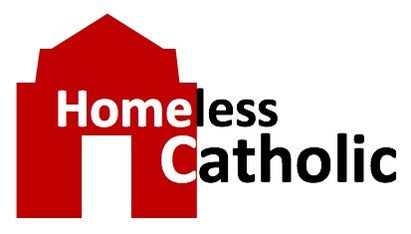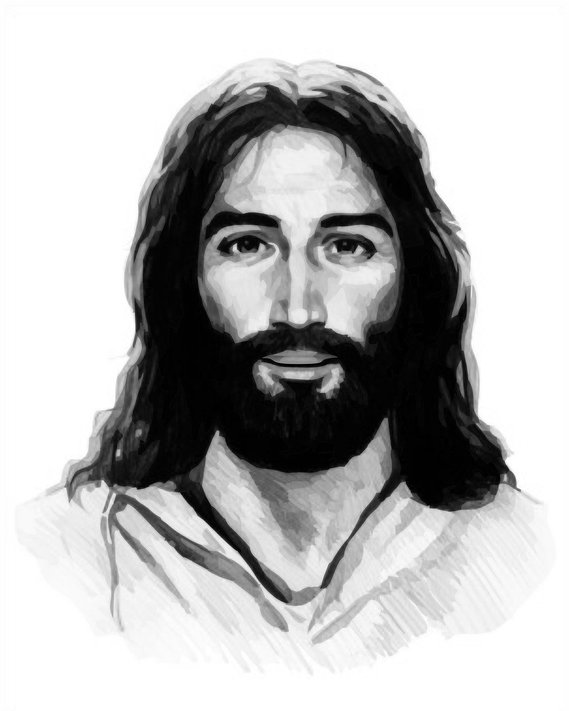"In My Name"
Jesus makes a promise in verses 13 and 14 which is routinely abused by well-meaning believers. Key to understanding this statement is the context of Jesus' other comments about prayer and the will of God. It's also crucial to note the actual words stated. These remarks come in the middle of reassurances given to the disciples (John 14:1–11). They are especially tied to the comment Jesus made about His followers doing "greater" works that He did (John 14:12).
The cornerstone of interpreting this verse is the qualifier Jesus provides: that requests must be made "in my name."
Image by Roy N
In my name
By Tim Trainor
https://bible.usccb.org/bible/readings/050121.cfm
Acts 13:44-52
John 14:7-14
This Saturday, May 1st, is the optional Feast Day of Saint Joseph the Worker and I would like to open by offering some comments on it.
St. Joseph has two feast days on the liturgical calendar. The first is March 19: Joseph, the Husband of Mary. The second is May 1: Joseph, the Worker.
Per Saint John Paul II “Saint Joseph is a man of great spirit. He is great in faith, not because he speaks his own words, but above all because he listens to the words of the Living God. He listens in silence. And his heart ceaselessly perseveres in the readiness to accept the Truth contained in the word of the Living God.”
There is very little about the life of Joseph in Scripture but still, we know that he was the chaste husband of Mary, the foster father of Jesus, a carpenter and a man who was not wealthy. We also know that he came from the royal lineage of King David.
We can see from his actions in scripture that Joseph was a compassionate man, and obedient to the will of God. He also loved Mary and Jesus and wanted to protect and provide for them.
Since Joseph does not appear in Jesus' public life, at his death, or resurrection, many historians believe Joseph had probably already died before Jesus entered public ministry.
Joseph is the patron of many things, including the universal Church, the dying, social justice and fathers.
Pope Pius XII chose to establish the feast of Saint Joseph the Worker, patron of labor on this date in 1955 to underscore that we can offer our work to the Lord for his glory and our own sanctification.
Now on to my reflection, from our Gospel reading: Whoever has seen me has seen the Father.
This, along with Jesus' several “I AM” statements, plus, John 3:16 (”For God so loved the world that he gave his one and only Son, that whoever believes in him shall not perish but have eternal life.”) are, to me, the most important statements of the New Testament!
Today in our reading - Jesus is telling us the best way to know who the Father is, is to look at him and the way he behaves. When we see his kindness, his closeness to sinners and to those marginalized by others, we are seeing the Shepherding Lord in Palms 23.
When we see to what extent he was ready to go to share our human condition, we are seeing the Father. The Father that ran to meet his son in the parable of the Prodigal Son is this Father. I thank God for making it so easy for us to know Him.
So, when Jesus said to Philip, ‘Have I been with you all this time, and you still do not know me? I might hear these words as addressed to me. I have been with Jesus for so many years, but do I really know him? Like every other relationship, my relationship with Jesus can grow, but this needs commitment and time. This thought causes me to thank Jesus for the quality of our relationship, and I ask him to help me see Him more clearly so that I can know Him even more deeply and follow Him better.
In today’s Gospel, Jesus says He is the human face of God. We are being invited to reflect on the coming of God among us in the human form of the man, Jesus. What does it mean for me that Jesus is really God in human form? Does it change my reading of the Gospels to think of this? How do I now feel when I read about Jesus attending a wedding, or having dinner in the house of friends, or eating and drinking with the marginalized people of his time, and I say to myself, “this is God doing this! This is how our God behaves!”
How do I feel when I read about Jesus lonely and distressed in the garden of Gethsemane, and I realize that this is God also? Does it change the image of God that I have had?
The words of Jesus to Philip are astonishing. We could say that this is the high-point of John's gospel, and even of the New Testament as a whole. 'To have seen me is to have seen the Father'. Jesus is not simply a holy man, or a prophet, or a God-like angel- he is the image of the invisible God, God's self-portrait (God's 'selfie' so to speak!).
The Father is 'in' Jesus, as Jesus is 'in' the Father. It is an empowering presence; it enables Jesus to perform great works and enables us to do even greater works (per Jesus in verse 12). And yet, even as he speaks, Jesus knows he is to be handed over: to be tortured, abused and executed. So His 'power' shows itself in total weakness and vulnerability also.
We see in this reading how Philip frustrates Jesus, (as did Thomas in the immediately preceding passage). Slow of understanding, he elicits a gentle but somewhat exasperated rebuke from Jesus, “Have I been with you all this time, Philip, and you still do not know me?”
This causes me to think: In what ways do I see myself frustrating Jesus and in what way, if any, do I console him like the Apostle John did at the Last Supper? How about you?
In the next 2 verses, that I will get to shortly, we ourselves are being invited to share in the life and work of God, to share God's life, to do what God does. This Last Supper discourse in John, which we are looking at, is about our being initiated, being drawn into the godhead: as children, as friends of God and - coming up, as co-workers with God.
As we receive Jesus and take Him and His message to heart (a life long journey), we become more and more His presence in the world so much so that to receive us is, in a way, to receive Jesus, and to receive Jesus is to receive the Father. Think about that!
We need to be very humble and patient about embodying the presence of Jesus in the world as we have so much growth to accomplish and we are in constant need of purification. We are very much a work in progress!
Daily, perhaps, each of us should consider praying the 13th century prayer, which was refreshed in all our minds by the musical Godspell in 1971:
‘Dear Lord, three things I pray: to see you more clearly, love you more dearly, and follow you more nearly, day by day.’
What a formula for insuring that each of us comes to deeply know the Lord in the deepest meaning of that word.
Now onto our last 2 verses which are quite interesting.
Jesus makes a promise in verses 13 and 14 which is routinely abused by well-meaning believers. Key to understanding this statement is the context of Jesus' other comments about prayer and the will of God. It's also crucial to note the actual words stated. These remarks come in the middle of reassurances given to the disciples (John 14:1–11). They are especially tied to the comment Jesus made about His followers doing "greater" works that He did (John 14:12).
The cornerstone of interpreting this verse is the qualifier Jesus provides: that requests must be made "in my name." This implies someone who is acting according to the will and authority of someone else. A cliché from old movies involves police officers shouting "Stop, in the name of the law!" The implication is they are speaking with the approval of a greater power. When a foreign ambassador says, "I agree to these terms in the name of the king," it means his ruler has given him the authority to make such a bargain.
On the other hand, people would probably laugh if a police officer said, "buy me coffee, in the name of the law!" Merely using that phrase does not guarantee the person to get whatever they want. They can only use that authority and expect results when they act according to the will of the law. And the law does not demand that random people purchase food for the officer. Do you get my point?
In that sense, Jesus does not say, "I will give you anything you ask for." Nor does He say, "as long as you include the magic words 'in Jesus' name,' I will grant you any request."
Christ promises He will do anything that is asked "in my name." That implies that the person is asking something consistent with the will and nature of Christ. This, in turn, means such a request is consistent with the will and nature of God (per John 14:10).
Now let's finish up by reflecting on :How can we do greater works than Jesus did?
The Apostles are said to have turned their world upside down and, people just like us, over the centuries, filled with the desire to heal and to make the world a better place, have mastered diseases, combated famine, tamed the flooding of rivers and built alliances like the United Nations to make peace more possible. So - Lord, let each of us in our own families and corner of the world continue your work. Fill us with Your spirit and light and thereby bring truth and peace where ever we go.
Jesus, you call me to be audacious - I am to do even ‘greater works’ than you do. But your central ‘work’ is the giving of your life. Don’t let that now put me off! Help me recall the words in Pope John Paul II famous “Be not afraid” inauguration speech!
Jesus, please help me begin now and grow day by day to trust and really desire that it should be Thy Kingdom that comes and Thy will that is done (as we say in the Our Father Prayer) and not my kingdom nor my self-centered will that is done.
Jesus, help me to see You more clearly, love You more dearly, and follow You more nearly, day by day. And thereby may You lead me to do these even ‘greater works’ than You did, that You desire me, to be NOT afraid to do! In Jesus' name I pray.

